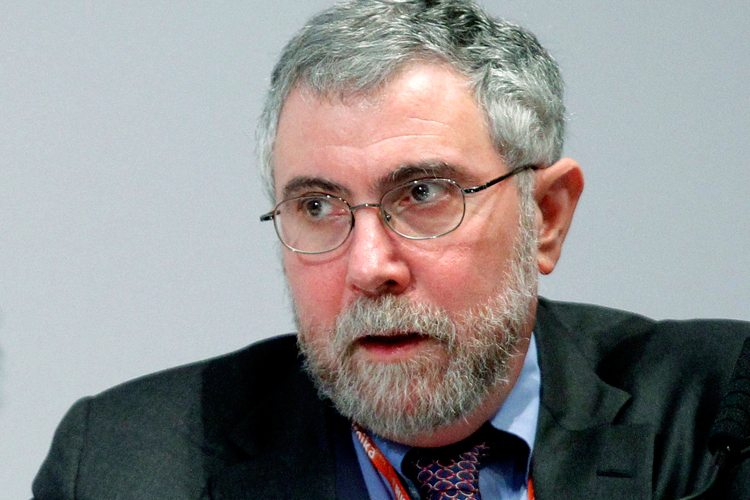For his latest article, New York Times columnist Paul Krugman inveighs against Republicans who would let unemployment benefits expire in a misguided effort to help the long-term unemployed.
“Six years have passed since the United States economy entered the Great Recession, four and a half since it officially began to recover, but long-term unemployment remains disastrously high,” Krugman writes. “And Republicans have a theory about why this is happening. Their theory is, as it happens, completely wrong. But they’re sticking to it — and as a result, 1.3 million American workers, many of them in desperate financial straits, are set to lose unemployment benefits at the end of December.”
Krugman goes on to dismantle GOP talking points on unemployment insurance, noting that they’re largely based on decades-old academic research that, in an economy suffering from a lack of demand, doesn’t apply to the current situation. “[T]he G.O.P. answer to the problem of long-term unemployment is to increase the pain of the long-term unemployed,” Krugman writes. “Cut off their benefits, and they’ll go out and find jobs. How, exactly, will they find jobs when there are three times as many job-seekers as job vacancies? Details, details.”
More from Paul Krugman at the New York Times:
The view of most labor economists now is that unemployment benefits have only a modest negative effect on job search — and in today’s economy have no negative effect at all on overall employment. On the contrary, unemployment benefits help create jobs, and cutting those benefits would depress the economy as a whole.
Ask yourself how, exactly, ending unemployment benefits would create more jobs. It’s true that some of the currently unemployed, finding themselves even more desperate than before, might manage to snatch jobs away from those who currently have them. But what would give businesses a reason to employ more workers as opposed to replacing existing workers?
You might be tempted to argue that more intense competition among workers would lead to lower wages, and that cheap labor would encourage hiring. But that argument involves a fallacy of composition. Cut the wages of some workers relative to those of other workers, and those accepting the wage cuts may gain a competitive edge. Cut everyone’s wages, however, and nobody gains an edge. All that happens is a general fall in income — which, among other things, increases the burden of household debt, and is therefore a net negative for overall employment.
Ultimately, Krugman concludes that the GOP will likely win its battle against extending unemployment benefits. “[T]he odds, I’m sorry to say, are that the long-term unemployed will be cut off, thanks to a perfect marriage of callousness — a complete lack of empathy for the unfortunate — with bad economics.”

